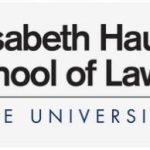Capital University Law School was founded in 1891 by a group of Ohio lawyers determined to create an institution that would provide the highest quality of legal education. The founders were inspired by the belief that the law should be available to everyone, regardless of their social or economic status.
The school opened its doors in 1892 with an inaugural class of just 15 students. Over the years, the school has grown significantly, now boasting over 800 students and more than 100 faculty members. Throughout its history, Capital University Law School has consistently earned high rankings from US News & World Report and other leading publications. The law school is also well-regarded for its extensive alumni network which includes prominent attorneys, judges, legislators and other influential individuals across the country.
In recent years, Capital University Law School has focused on providing students with experiential learning opportunities through internships, clinical courses and externships with local organizations and firms. These experiences have allowed students to gain practical experience while also developing their legal skills in a real-world setting. Furthermore, Capital University Law School also provides valuable career services such as resume reviews, job search assistance and mock interviews to help prepare students for their professional lives after graduation.
Capital University Law School is located in the state of Ohio. As one of the leading law programs, Capital University Law School has a high average LSAT score of 151-156 when recruiting new students. As a return, the median starting salary for law graduates reaches $79,000 per year. See the following table for detailed admissions information and career profiles of Capital University Law School.
Admissions: Capital University
Capital University Law School is one of the top-ranked law schools in the country. It has a highly competitive admissions process, with an acceptance rate of only 25%. This means that out of every 100 applicants, only 25 are accepted. In addition to this low acceptance rate, Capital University Law School also has a high graduation rate of 91%, making it one of the best law schools in terms of student success. The school also has an impressive bar passage rate of 93%, which is well above the national average. The student body at Capital University Law School is diverse, with students from many different backgrounds and countries represented on campus. Furthermore, the school offers students a range of academic and extracurricular opportunities to help them succeed in their legal studies.
| Fall 2019 Admissions and Enrollment Statistics | |
|---|---|
| Total number of full- and part-time applicants | 1,434 |
| Total number of full- and part-time acceptances | 813 |
| Overall acceptance rate | 56.7% |
| Total number of full- and part-time first-year students enrolled | 248 |
| Number of full-time program applicants | 1,174 |
| Number of full-time program acceptances | 693 |
| Full-time acceptance rate | 59.0% |
| Number of first-year full-time students enrolled | 182 |
| Number of part-time program applicants | 260 |
| Number of part-time program acceptances | 120 |
| Part-time acceptance rate | 46.2% |
| Number of first-year part-time students enrolled | 66 |
| Fall 2019 GPA and LSAT Scores | |
| 25th-75th percentile GPA scores for all students | 2.96-3.5 |
| 25th-75th percentile LSAT scores for all students | 150-156 |
| 25th-75th percentile undergraduate GPA for full-time students | 2.96-3.51 |
| 25th-75th percentile LSAT scores for full-time students | 151-156 |
| 25th-75th percentile undergraduate GPA for part-time students | 2.86-3.47 |
| 25th-75th percentile LSAT scores for part-time students | 150-155 |
Careers: Capital University
| Bar Statistics (Winter and Summer 2018 administrations) | |
|---|---|
| State where the greatest number of first-time test takers took the bar | OH |
| School’s bar passage rate for first-time test takers | 94.8% |
| Statewide bar passage rate for first-time test takers | 87.8% |
| Class of 2018 Graduates | |
| Total graduates | 179 |
| Graduates employed at graduation | N/A |
| Graduates known to be employed nine months after graduation | 76.5% |
| Starting Salaries of 2018 Graduates Employed Full-time | |
| 25th percentile private sector starting salary | $55,000 |
| Median private sector starting salary | $79,000 |
| 75th percentile private sector starting salary | $118,500 |
| Percent in the private sector who reported salary information | 39% |
| Median public service starting salary | $44,250 |
| Areas of Legal Practice (Class of 2018) | |
| Percent employed in academia | 2.4% |
| Percent employed in business and industry | 16.5% |
| Percent employed in government | 19.7% |
| Percent employed in all judicial clerkships | 0.8% |
| Percent employed in law firms | 56.7% |
| Percent employed in public interest | 3.9% |
| Percent employed in an unknown field | 0.0% |
| Percent employed in a judicial clerkship by an Article III federal judge | 0.8% |
| 2018 Graduates Employment Location | |
| Graduates employed in-state | 87% |
| Graduates employed in foreign countries | 0% |
| Number of states where graduates are employed | 12 |
| New England (CT, ME, MA, NH, RI, VT) | 0.0% |
| Middle Atlantic (NY, NJ, PA) | 2.3% |
| East North Central (IL, IN, MI, OH, WI) | 90.6% |
| West North Central (IA, KS, MN, MO, NE, ND, SD) | 1.6% |
| South Atlantic (DE, DC, FL, GA, MD, NC, SC, VA, WV) | 2.3% |
| East South Central (AL, KY, MS, TN) | 0.0% |
| West South Central (AR, LA, OK, TX) | 1.6% |
| Pacific (AK, CA, HI, OR, WA) | 1.6% |
| Mountain (AZ, CO, ID, MT, NV, NM, UT, WY) | 0.0% |
| Employment location unknown | 0.0% |
| Career Services | |
| (Data appear as originally submitted by this school) | |
| Career services operations | The Office of Professional Development offers a wide variety of career-related resources; provides individual career counseling to students & alumni; reviews resumes and cover letters; offers programs & skills training; maintains an online job posting board; coordinates fall & spring on-campus recruiting programs; administers the Pro Bono Recognition Program; and maintains the Public Interest Ctr. |
| Job Type | |
| Bar admission required or anticipated (e.g., attorney and corporate counsel positions, law clerks, judicial clerks) | 71.0% |
| J.D. preferred, law degree enhances position (e.g., corporate contracts administrator, alternative dispute resolution specialist, government regulatory analyst, FBI special agent) | 18.0% |
| Professional/other (jobs that require professional skills or training but for which a J.D. is neither preferred nor particularly applicable; e.g., accountant, teacher, business manager, nurse) | 11.0% |
| Nonprofessional/other (job that does not require any professional skills or training or is taken on a temporary basis and not viewed as part of a career path) | 0.0% |









